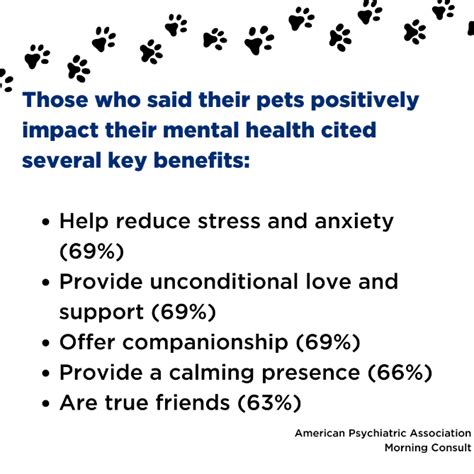Introduction

Pet ownership is becoming increasingly popular worldwide. According to the American Pet Products Association (APPA), 67% of U.S. households own a pet, with dogs (69 million) and cats (47 million) being the most popular choices. Pets provide companionship, unconditional love, and a sense of purpose for their owners. However, just like humans, pets can also experience mental health issues and behavioral problems. Mental health issues such as anxiety, depression, and obsessive-compulsive disorder (OCD) can affect pets of all ages and breeds. Behavioral problems, such as aggression, destructiveness, and inappropriate elimination, can also be a sign of underlying mental health issues.
Mental Health Disorders in Pets
- Anxiety is one of the most common mental health disorders in pets. Signs of anxiety in pets can include pacing, panting, drooling, trembling, and hiding. Anxiety can be caused by a variety of factors, including genetics, environmental stressors, and traumatic experiences.
- Depression is another common mental health disorder in pets. Signs of depression in pets can include lethargy, loss of appetite, sleeping more or less than usual, and changes in behavior. Depression can be caused by a variety of factors, including loss of a loved one, changes in routine, and physical illness.
- Obsessive-compulsive disorder (OCD) is a mental health disorder that is characterized by repetitive behaviors, such as licking, chewing, or pacing. OCD can be caused by a variety of factors, including genetics, environmental stressors, and traumatic experiences.
Behavioral Problems in Pets
- Aggression is one of the most common behavioral problems in pets. Signs of aggression in pets can include growling, snapping, biting, and charging. Aggression can be caused by a variety of factors, including genetics, environmental stressors, and traumatic experiences.
- Destructiveness is another common behavioral problem in pets. Signs of destructiveness in pets can include chewing on furniture, digging holes in the yard, and scratching at doors and windows. Destructiveness can be caused by a variety of factors, including boredom, anxiety, and attention-seeking behavior.
- Inappropriate elimination is a behavioral problem in pets that can be caused by a variety of factors, including medical conditions, anxiety, and attention-seeking behavior.
Socialization of Pets
Socialization is an important part of a pet’s development. Socialized pets are more likely to be well-adjusted and have healthy relationships with humans and other animals. Socialization should begin early in a pet’s life and continue throughout its lifetime.
Importance of Pet Mental Health and Socialization
Pets are an important part of our families and our lives. They provide companionship, unconditional love, and a sense of purpose. However, just like humans, pets can also experience mental health issues and behavioral problems. These issues can affect a pet’s quality of life and its relationship with its family.
Tips for Pet Mental Health and Socialization
- Provide a healthy environment for your pet. This includes providing a safe and comfortable place to live, with plenty of food, water, and toys. It also includes making sure your pet gets regular exercise and mental stimulation.
- Spend time with your pet. One of the best ways to keep your pet mentally healthy is to spend time with it. Play with it, talk to it, and groom it. This will help your pet feel loved and secure.
- Socialize your pet. Socialization is important for pets of all ages. It helps them learn how to interact with humans and other animals in a positive way. Socialization can be done through obedience classes, playdates, and walks in the park.
- Watch for signs of mental health issues or behavioral problems. If you notice any changes in your pet’s behavior, such as anxiety, depression, aggression, or destructiveness, it is important to consult with a veterinarian or animal behaviorist.
Conclusion
Pet mental health and socialization are important aspects of pet ownership. By providing a healthy environment, spending time with your pet, and socializing it, you can help your pet live a long, happy, and healthy life.





















